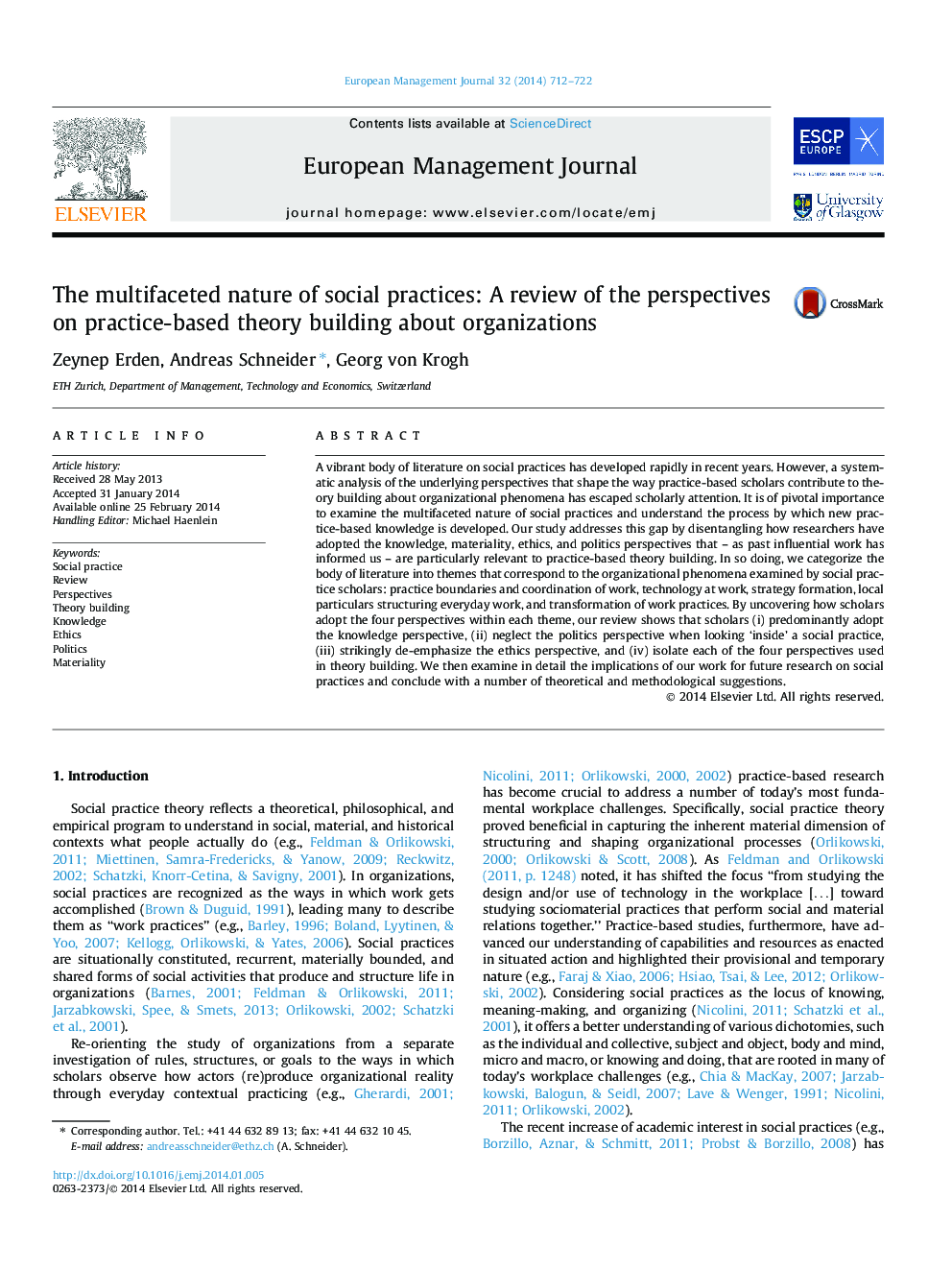| Article ID | Journal | Published Year | Pages | File Type |
|---|---|---|---|---|
| 1014825 | European Management Journal | 2014 | 11 Pages |
•We augment our understanding of how researchers build theory about social practices.•We uncover the perspectives fieldworkers adopted to theorize about social practices.•Prior studies adopted the knowledge – while omitting the ethics-perspective.•Scholars neglected the politics perspective when looking ‘inside’ social practices.•Integrating perspectives enables capturing the various facets of social practices.
A vibrant body of literature on social practices has developed rapidly in recent years. However, a systematic analysis of the underlying perspectives that shape the way practice-based scholars contribute to theory building about organizational phenomena has escaped scholarly attention. It is of pivotal importance to examine the multifaceted nature of social practices and understand the process by which new practice-based knowledge is developed. Our study addresses this gap by disentangling how researchers have adopted the knowledge, materiality, ethics, and politics perspectives that – as past influential work has informed us – are particularly relevant to practice-based theory building. In so doing, we categorize the body of literature into themes that correspond to the organizational phenomena examined by social practice scholars: practice boundaries and coordination of work, technology at work, strategy formation, local particulars structuring everyday work, and transformation of work practices. By uncovering how scholars adopt the four perspectives within each theme, our review shows that scholars (i) predominantly adopt the knowledge perspective, (ii) neglect the politics perspective when looking ‘inside’ a social practice, (iii) strikingly de-emphasize the ethics perspective, and (iv) isolate each of the four perspectives used in theory building. We then examine in detail the implications of our work for future research on social practices and conclude with a number of theoretical and methodological suggestions.
